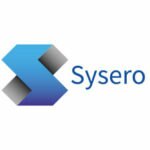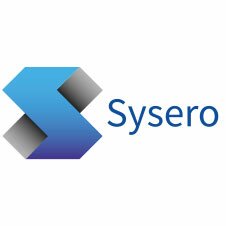Navigating legal workflow automation: five must-have capabilities according to Sysero
In the fast-paced legal industry, efficiency and accuracy are paramount. Legal professionals are often burdened with repetitive, time-consuming tasks that detract from their ability to focus on more strategic, high-value work. This is where workflow automation technology comes in. By automating routine processes, legal teams can streamline operations, reduce errors, and enhance productivity. Yet with a myriad of options available, how do you choose the right automation tool for your firm?
Here are five must-have capabilities for any legal workflow automation technology.syss
1) Exceptional User Experience
A seamless and intuitive user experience is paramount for any workflow automation tool. Legal professionals are typically not software engineers, so the technology they use must be user-friendly and easy to navigate.
When evaluating a legal workflow automation technology, be sure to ask the following questions:
-
Does the platform offer an intuitive interface that non-technical users can easily navigate?
-
Does it offer user-friendly tools, such as drag-and-drop functionality and flexible searching capabilities?
-
Does the platform empower seamless, yet secure, collaboration between internal users and external contributors?
An exceptional user experience ensures that legal professionals can adopt and utilise the automation tool efficiently, leading to higher productivity and user satisfaction. Workflow automation tools like Sysero provide users with an intuitive visual designer which enables lawyers and staff to quickly and easily build workflows, without the need for IT assistance. Lawyers can easily and accurately construct custom applications to fit their unique requirements, eliminating the need for extensive training. Sysero’s flexible Hybrid Cloud workflow automation technology also enables firms to host workflow forms on the public cloud to make them easily available to clients, whilst storing the data they provide on the private cloud for maximum security.
2) Customisable Workflows
Every legal practice has its unique processes and requirements. Workflow automation technology must offer customisable workflows to accommodate these specific needs. Important features include:
-
Drag-and-Drop Workflow Builder: Simplifies the creation and modification of workflows without needing technical expertise.
-
Conditional Logic: Allows workflows to adapt based on specific criteria or triggers, ensuring that processes can handle various scenarios.
-
Flexible Templates: Customisable templates that can be aligned to fit the firm’s specific tasks and processes.
Customisable workflows enable legal teams to tailor the automation tool to their exact needs, ensuring that it enhances rather than disrupts their existing processes. For example, when Spoor & Fisher Jersey tested its new Sysero workflow system, the firm discovered that around 1 in 10 cases in the IP system had sub-cases, which were not supported by the firm’s DMS system. Fortunately, Sysero’s low-code platform made it possible to add additional code to allow for the successful handling of these edge cases.
3) Real-Time Updates
Workflow automation is often used for template management systems within law firms, where collaboration is essential. By leveraging workflow automation for template management, legal professionals can work together on document creation and revisions, yet any update made to a template must instantly be reflected across the template management system to eliminate the risk of outdated or conflicting versions.
When evaluating a legal workflow automation technology, be sure to ask how quickly updates and revisions are reflected across the system to ensure that your firm is providing up-to-date and informed services.
4) Seamless Industry Integrations
Legal professionals rely on a variety of tools and systems to manage their work. Workflow automation technology must seamlessly integrate with these existing tools to provide a unified and efficient working environment. To be effective, workflow automation tools should be able to capture and pass data from applications such as Microsoft Word, CRMs, DMS and more.
Fortunately, automated template management solutions like Sysero integrate seamlessly with in-house legal systems, such as iManage, CRM, case management, and other internal systems. Through improved internal integrations, law firms can simplify the client experience and demonstrate a commitment to providing excellent and cutting-edge legal services.
5) Enhanced Security Features
Given the sensitive nature of legal work, data security is a top priority for any workflow automation technology. The tool must provide robust security features to protect client information and comply with regulatory requirements. Essential security capabilities include:
-
Data Encryption: Ensures that data is encrypted both in transit and at rest to protect it from unauthorised access.
-
Access Controls: Granular user permissions and role-based access controls to ensure that only authorised personnel can access specific information.
-
Compliance Certifications: Adherence to industry standards and regulations, such as GDPR and KYC, demonstrating a commitment to data security and privacy.
Enhanced security features ensure that legal teams can trust the automation tool to safeguard their sensitive information and maintain compliance with regulatory requirements.
Cloud-based technologies like Sysero can go a long way toward ensuring data security and mitigating compliance risk. By embedding compliance into every day processes, digital workflows can be the key to minimising compliance risks and enforcing compliant behaviours. Plus, tools like Sysero also enable you to enforce data protection policies and securely store data using data security best practices, such as pseudonymisation and encryption.
In Conclusion
Choosing the right workflow automation technology can revolutionise the way legal firms operate, enabling them to work more efficiently, accurately, and strategically. By focusing on these five must-have capabilities—exceptional user experience, customisable workflows, real-time updates, seamless industry integrations, and enhanced security—firms can ensure they select a solution that meets their needs and drives meaningful improvements.
Investing in workflow automation is not just about keeping up with technology trends; it’s about empowering your legal team to focus on what they do best: delivering exceptional legal services to their clients. To learn more about Sysero’s legal workflow automation technology, please get in touch.



